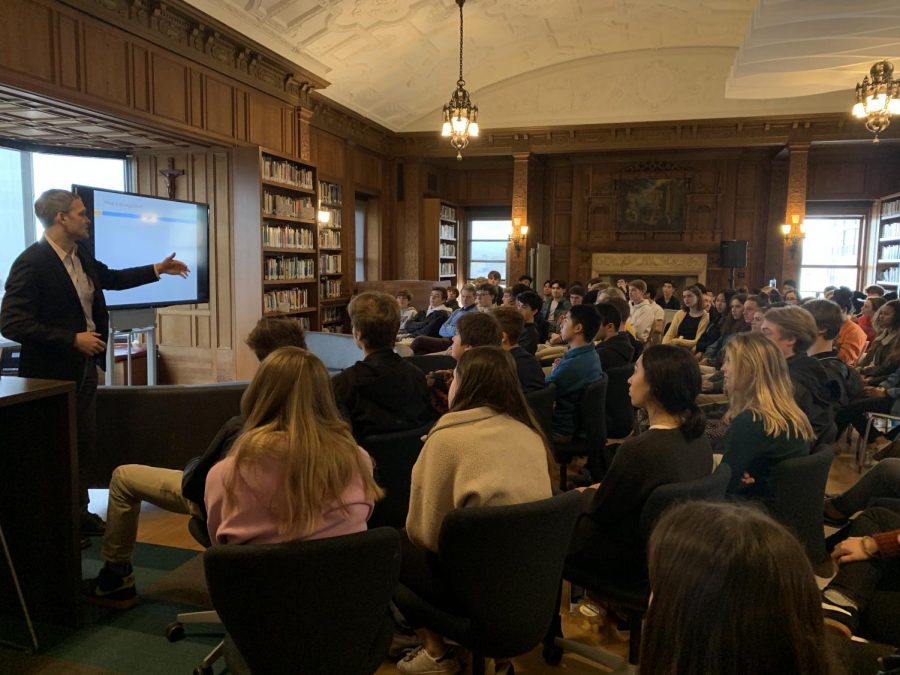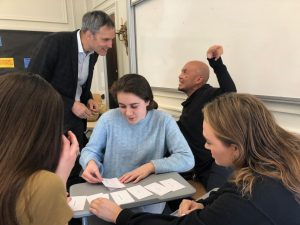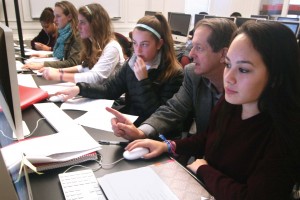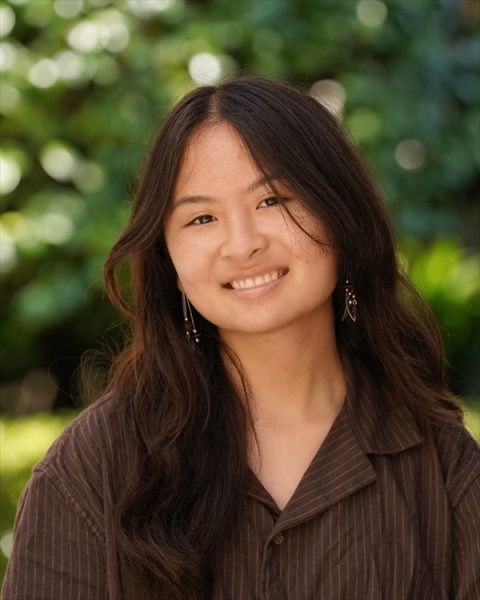Presenter teaches juniors about algorithms, artificial intelligence
Villaseñor engages students by asking interactive questions and hearing students’ responses. The topics he discussed included algorithms, police profiling, Gerrymandering, self driving cars and the ethics behind AI.
January 19, 2019
WEB EXCLUSIVE Convent & Stuart Hall juniors gathered in the Williams Library today to hear John Villaseñor, senior fellow at the Center for Technology Innovation at Brookings, present about artificial intelligence and its influence on the world.
“High schoolers are graduating into and will be working in a world where AI is really important,” Villaseñor said. “Whether or not you work in AI, having an understanding of both its advantages and its risks is really useful.”
The assembly covered algorithms and their complexity, from tying your shoelaces to MRI machines.
“It’s super interesting to me to learn about AI especially because I feel that we do not talk about it often,” junior Lila Horwitz said.
Villaseñor went over the definition of “artificial intelligence” and expanded on how AI relies on algorithms to function. Students were allowed to ask questions and voice their opinions on AI.
“I do not think that AI is a good idea and I do not think this assembly changed my views,” junior Maeven Mcshane said, “but it was still nice to understand the facts and the definitions of algorithms.”
To further explore AI, juniors were asked to decide who they would kill first in a hypothetical scenario — a pregnant woman, person pushing a stroller, athlete, physician, businessperson, cat, dog or criminal — as a moral exercise to demonstrate human values verse AI values.
“I think there are always going to be some benefits and some downsides to AI,” Horwitz said. “Artificial intelligence is already helping so many people especially in the medical world.”
Towards the end of the assembly, Villaseñor emphasized AI’s role in moral machines and how decisions would be made if machines were conscious.
“Going beyond AI, I would say that emerging technologies are really important and that it’s important to engage with them,” Villaseñor said. “Understanding their manifestations both good and bad and to look at not only the technology itself but the broader implications for society is important.”













